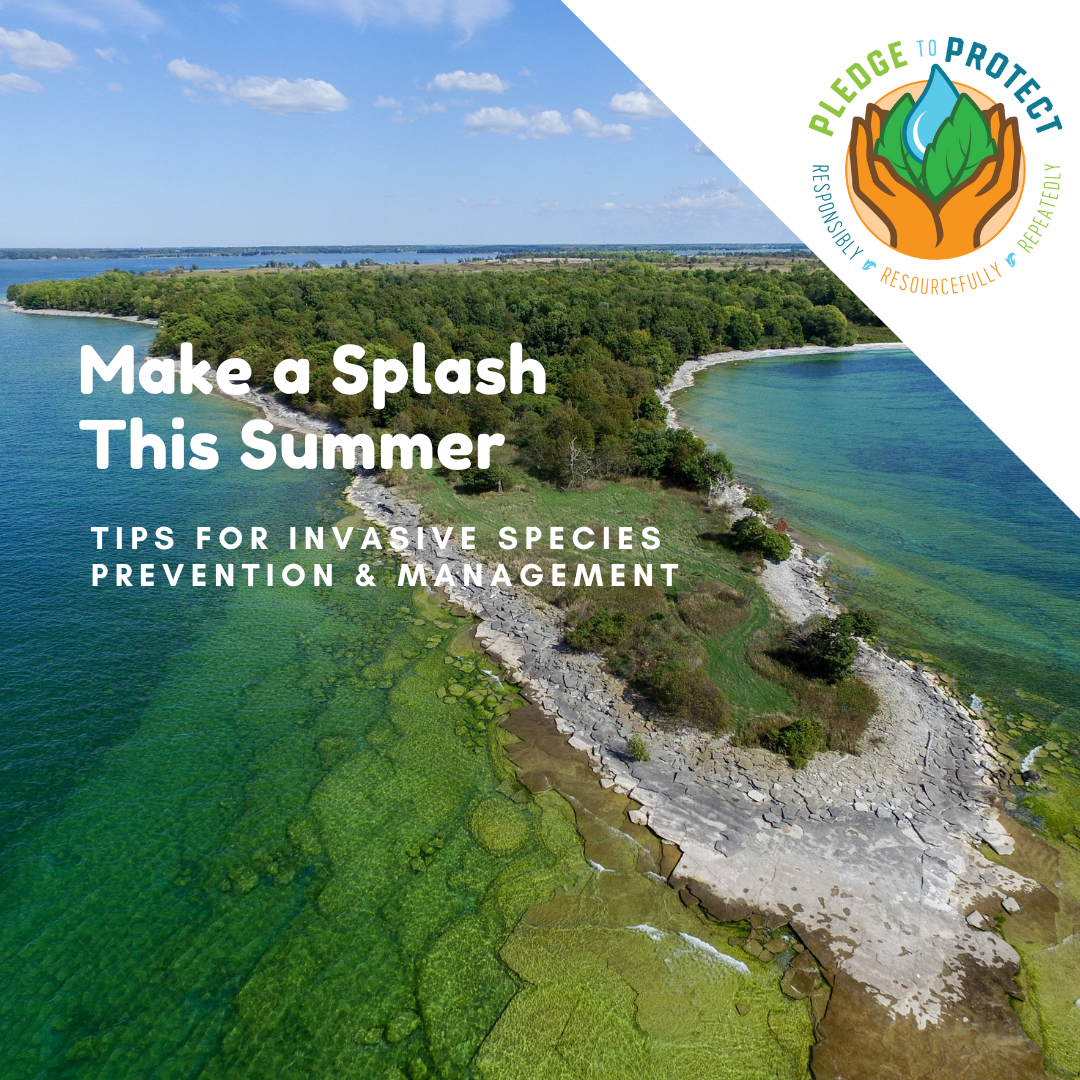Summer is ramping up, allowing for ample opportunities to
enjoy the great outdoors. Whether you like to camp, swim, hike, or boat, there
are many tips and resources available below to beat the heat and keep your
outdoor spaces safe.

Get Involved!
One of the most rewarding ways to act is to get involved in your community! SLELO PRISM and our partners invite community members to join us for volunteer efforts and events, including hikes, paddles, invasive species removals, and site restoration efforts.
At a statewide level, you can get involved with the Partnerships for Regional Invasive Species Management (PRISM). The PRISM network raises awareness of invasive species, provides prevention guidance, and are involved in the management of invasives across the state. Click the link below to learn more about the PRISM network.

Aid Community Science
You can aid community science by reporting invasive species observations to NYiMapInvasives- New York’s invasive species database. Using the NYiMapInvasives mobile app or website you can easily report presence and distribution data directly to invasive species management professionals. Data helps to locate new invasive species populations and strengthens management efforts.

While Boating
Aquatic invasive species (AIS) cause significant problems by clogging waterways, hindering recreation, reducing property values, and harming ecosystems. They can spread via watercraft, trailers, and fishing gear. To prevent this spread, follow these steps:
Clean. Thoroughly clean your boat, trailer, life jackets, fishing tackle, and other equipment immediately after use, removing any visible plant debris.
Drain. Empty live wells, bait buckets, bilge water, and lower your boat motor before leaving the boat launch area.
Dry. Ensure your vessel and equipment are completely dry for at least 5 days before using them in another water body to prevent the survival and spread of AIS.

While Hiking
The tread of your shoes and your pets’ fur can pick up and spread plant seeds and microscopic organisms, potentially introducing them to new areas. To prevent this, use a boot brush to clean your shoes before and after hiking. Many trails have boot brush stations, or you can buy a handheld boot brush from the PlayCleanGo store. Additionally, examine your pets for seeds in their fur and bathe them after hiking. Be sure to check for ticks on both you and your four-legged friends.

While Traveling
The spotted lanternfly (SLF) is an invasive insect that poses a severe threat to New York’s agricultural and tourism industries and forests. It feeds on over 100 plant species, including grapes, hops, apples, and maple trees, and excretes honeydew that attracts sooty molds, hindering plant growth and attracting stinging insects. SLF lays eggs on nearly any flat surface and can hitchhike on vehicles, spreading easily to new areas. To prevent the spread of SLF, travelers should check their vehicles, especially the grill and wheel wells, for SLF adults and eggs. Remove, destroy, and report findings to NYiMapInvasives.org or spottedlanternfly@agriculture.ny.gov.

While Using Firewood
Invasive insects like the emerald ash borer and long-horned beetle can easily hitchhike inside firewood. The larvae of these insects burrow tunnels in the wood, pupate, and emerge as adults. These invasive tree pests cause tree mortality and can significantly impact the overall health of natural and urban forests. To prevent this, source local firewood. In New York State, there are regulations against moving firewood more than 50 miles from where it originated. While camping, avoid bringing unused firewood home or using firewood sourced more than 50 miles from where you will use it. Additionally, buy certified heat-treated firewood. In New York, treated firewood must be subjected to a heat-treatment process at 71°C (160°F) for 75 minutes in a government-certified facility to kill any pests in the wood.
Virtual Toolboxes
Visit the Protector’s Virtual Toolboxes below to access resources themed for each category, and to learn more about how to protect your favorite outdoor spaces from invasive species.
Lands & Trails
Lands & Trails
Forests
Waters
Gardens
Communities
Did you enjoy this blog post? Take our Pledge to Protect and get monthly emails showcasing actions you can take to protect your favorite hiking trails, paddleways, forests, garden, and community from the impacts of invasive species!
Take the Pledge to Protect
The Pledge-to-Protect is a fun, positive, inviting, engaging and rewarding way to participate in invasive species prevention and management.
|
|



